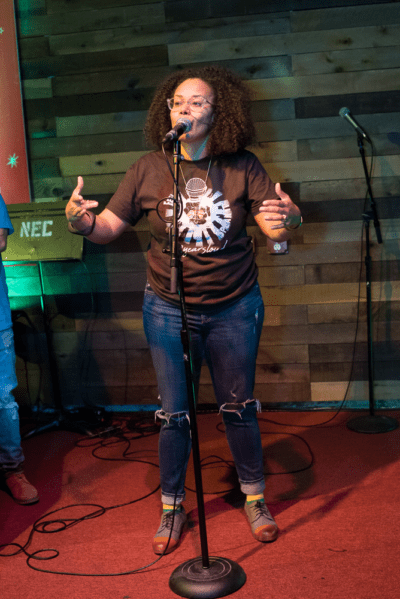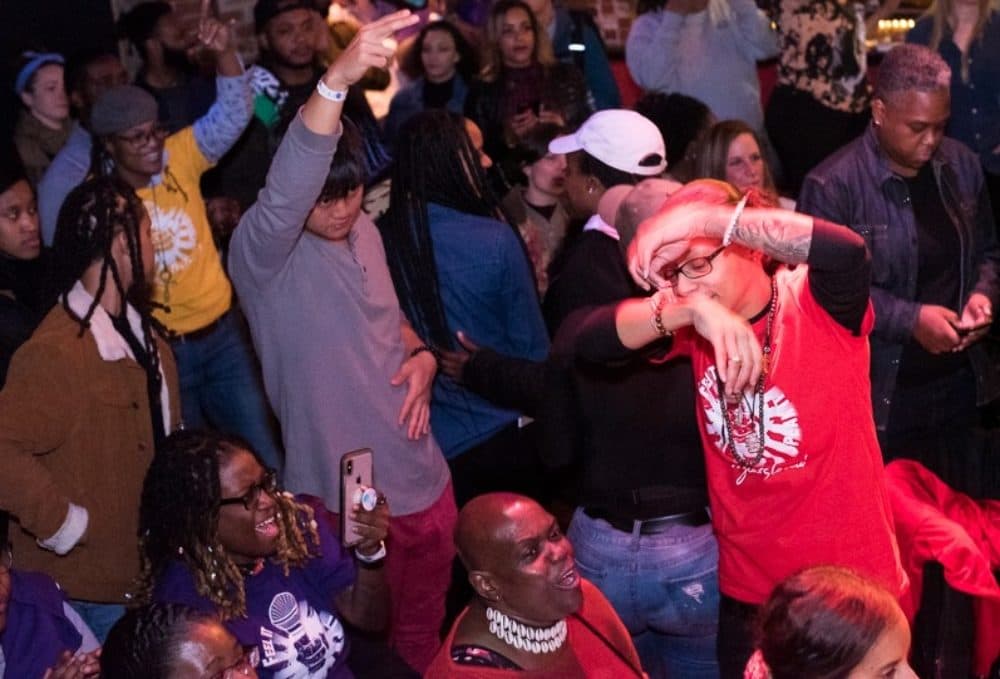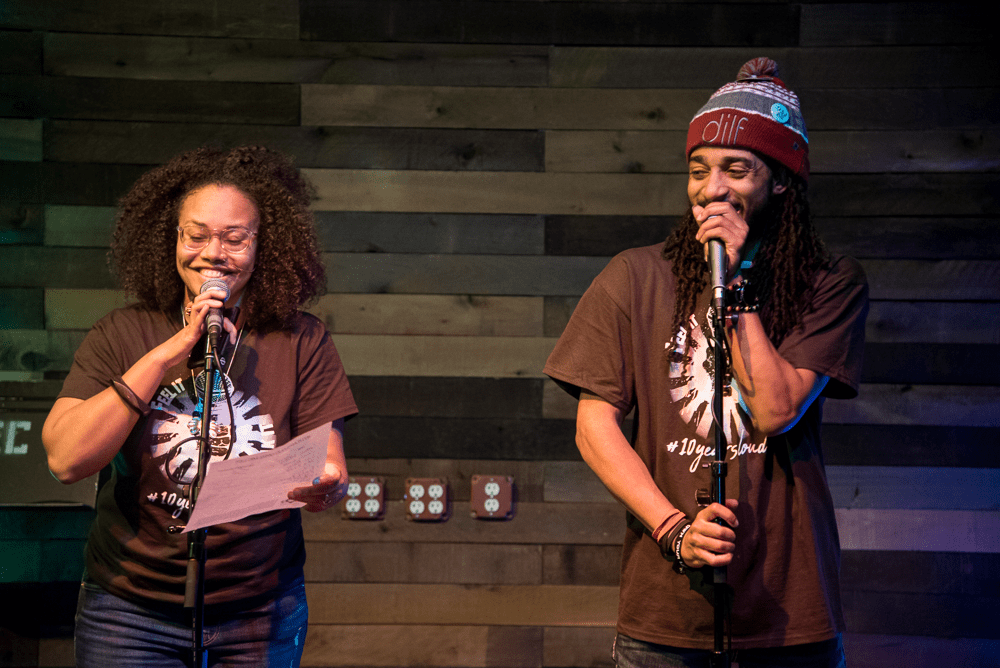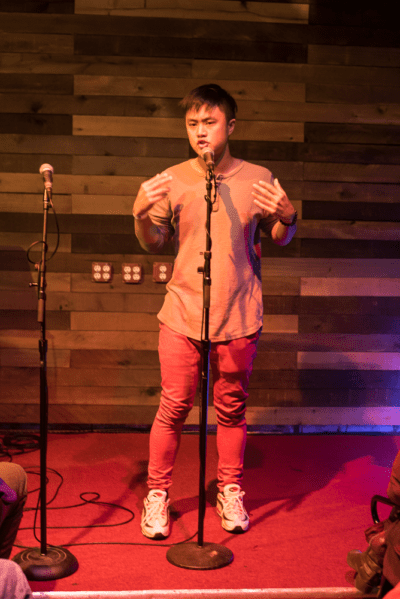Advertisement
10 Years On, An Open Mic For LGBTQ People Of Color Still Fills A Void In Boston
Resume
Jha D Williams started performing spoken word poems at open mics around Boston a little over a decade ago, when she was a freshman at Northeastern University. She'd caught the bug, and caught it bad.
"I'm not going to say that I was the best poet out there," she said. "But I definitely had some quality work and was pretty determined to perfect my craft."
But the budding poet didn't always get a warm reception. And not just because she was new to the art form.
"It wasn't blatant," Jha D, as she prefers to be known, said. "However, there was really no love from the audience for this young, black, queer woman. So if I was going to predominantly, you know, black spaces, I'm not going to say that there was outright homophobia, but there definitely wasn't an embrace of my queerness. And then if I was in predominantly white spaces, then there really wasn't, again, an embrace of my identities as a black woman."
So she decided to start her own open mic. One that centered the stories of Boston's black lesbian community. And that's how If You Can Feel It, You Can Speak It was born. Jha D held the first one in a bar on Dorchester Avenue. Only seven people showed up. But the concept resonated.
Now, If You Can Feel It, You Can Speak It is celebrating its tenth anniversary. The series has expanded in scope. It now bills itself as "the ONLY monthly open mic DEDICATED to the LGBTQI community of Color and its Allies," convening a diverse, LGBTQ-friendly community that welcomes performers of all identities and skill levels.
"You don't have to call yourself an artist to be in our space," Jha D told me. "You just have to be able to communicate however you communicate and we will welcome you into this space."

A lot of the series' early adopters are still regulars today, like the poet Phree.
"When I started performing, there weren't many spaces to perform in that were inclusive," Phree told me. "You know, I saw spaces like the Cantab Lounge out in Cambridge, and the Lizard Lounge out in Cambridge, and not for nothing, those both are spaces that aren't really for me."
A number of the series' long-time regulars form a loose collective that calls itself Team Be Spoken, or TBS. Its members, which include Phree, Jha D and her co-host D.Ruff, function as the spiritual core of the open mic, which now draws between 60 and 70 people on a typical night.
The series' growth coincided with, and maybe helped spur, an explosion in spoken word open mics around the city. "There's an abundance of mics now," Phree said.
Increased competition doesn't seem to have affected the mic's numbers, though — at least, it didn't on the 10th anniversary celebration in November, which was packed. Around 8:30 p.m., Jha D and D.Ruff took the stage at the Milky Way Lounge in Jamaica Plain for a giddy, meandering preamble.

They reminded performers to be respectful. "We are a community, we are a family," Jha D said. "Anything that you say in this space is definitely safe and sacred, but you also need to be held responsible and accountable for the things that come out of your mouth."

For the next few hours, people spoke, and sometimes sang, about the identities that defined them, and the struggles they vowed would not. They were joyful, angry, raunchy, defiant. One person talked about finding liberation in a skateboard ordered on Amazon; another extolled the pleasures of a certain unmentionable sex act. D.Ruff performed a poem he wrote a while back in tribute to the mic. The crowd joined in exuberantly on the refrain: "If you can feel it, you can speak it!"
About halfway through the show, the fire alarm went off. We shuffled reluctantly outside. There was no sign of a fire, so everyone gathered on the patio near the entrance. I struck up a conversation with Diana Alvarez, who had performed a song earlier, in Spanish, about "pushing back against cycles of violence and oppression in a family lineage." It was her first time at the open mic, and she drove two hours from western Mass. to get to JP. I asked her what inspired her to make the trek.
"It’s a queer people of color open mic, and there’s nothing like that," Alvarez said simply. "Anywhere."
It was this, more than any poem or song, that best summed up the night. Ten years since it started, in a now-flourishing open mic scene, If You Can Feel It, You Can Speak It is still vital, still necessary — still here.
The next If You Can Feel It, You Can Speak It open mic night is Thursday, Dec. 12 at 10 p.m. at Bella Luna and the Milky Way in Jamaica Plain.
This segment aired on December 12, 2019.
